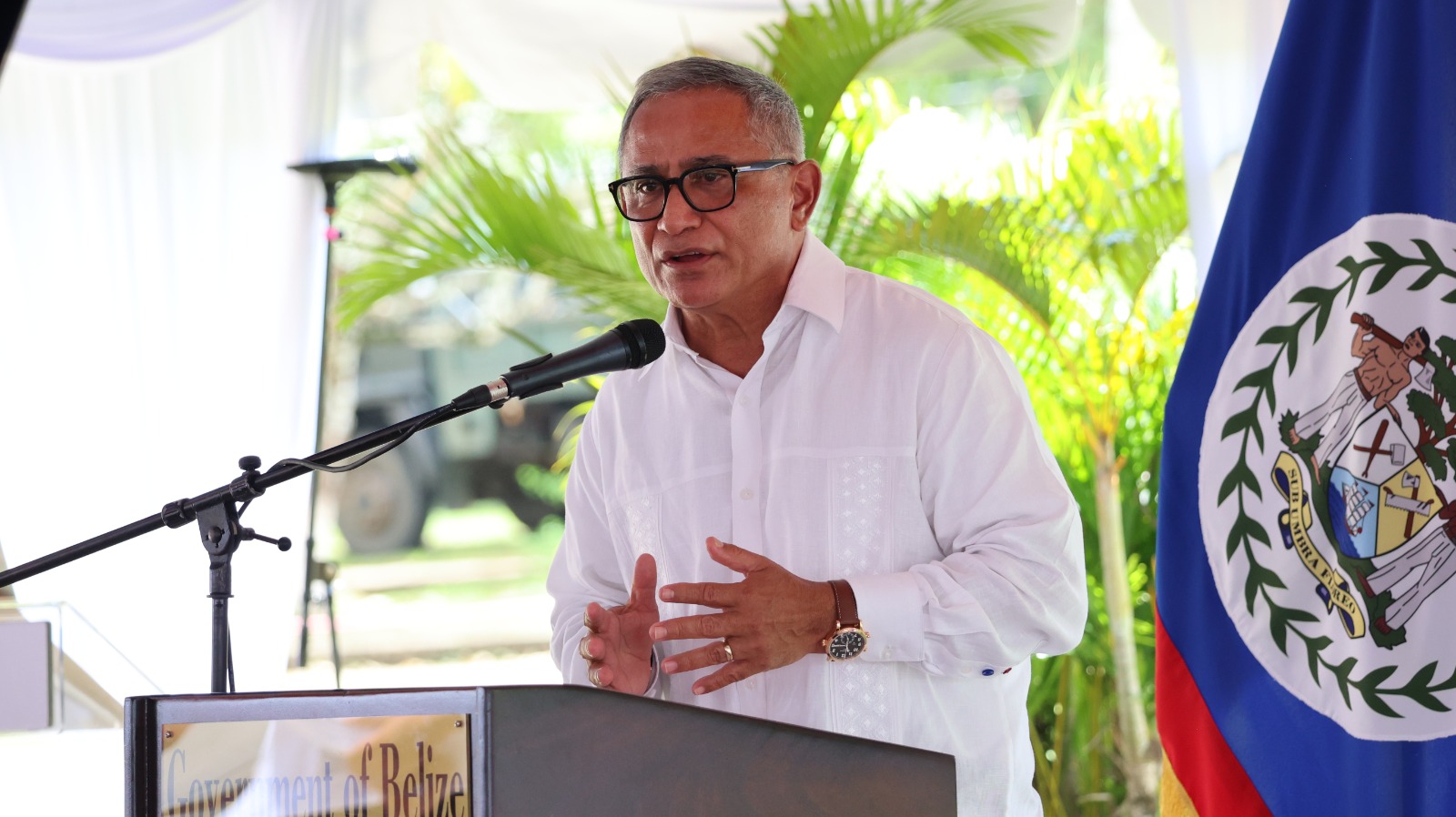Belize’s Prime Minister, the Honourable Dr. John Briceño, is the new Vice President of the SIDS DOCK, a Small Island Development States initiative for sustainable development. Briceño’s appointment to represent the Caribbean region was determined by acclamation and occurred during the seventh session of the SIDS DOCK Assembly held virtually on Monday, September 25th. It was held within the margins of the General Debate of the 78th United Nations General Assembly session at its headquarters in New York City, New York, USA. Briceño will start his term in January 2024. During the event, he spoke about a $50USD million initiative to mitigate against the sargassum seaweed invasion affecting Caribbean economies.
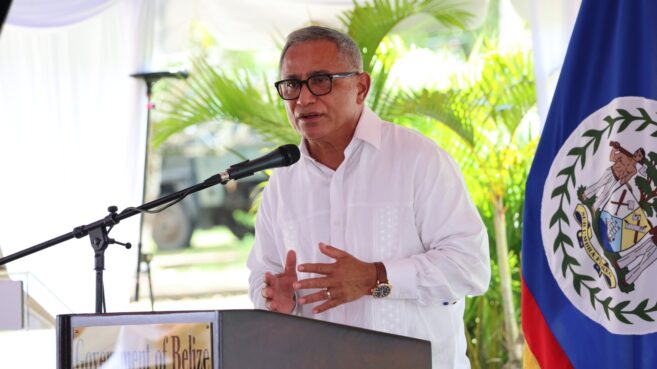
The situation with sargassum beaching on Belizean beaches over the past years has put a dent in the tourism industry and even affected the fishing industry. While it is a natural phenomenon believed to be altered by human action, Belize has struggled to tackle it with limited resources. Prime Minister Briceño’s government introduced a new ministry to utilize the Blue Economy; however, sargassum has taken some of the attention needed to develop this new government department. “We are all banking on the Blue Economy, and for Belize, our all-important Green and Orange Economies, we must take immediate action to mitigate against the sargassum invasion damaging Caribbean economies,” he said. As such, he proposed the pilot project to deploy the Caribbean region’s first waste-to-energy facility to tackle the invasive algae.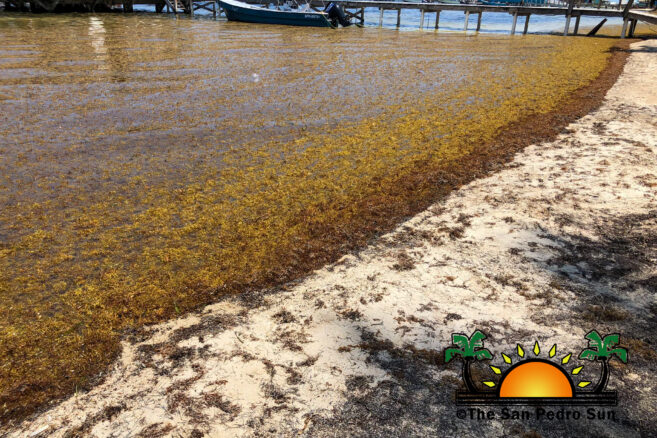
Briceño said this initiative will be an investment of $50 million, capable of converting the municipal solid waste and sargassum into biofuels that can substitute for diesel. This project will also execute a Power Purchase Agreement for baseloading sustainable power from the facility for potential scale-up through climate finance and other funding sources. “This initiative comes at no financial cost to the Government of Belize, and this is one of the values and advantages of a public-private partnership,” Briceño noted. The Prime Minister added that Belize, SIDS DOCK, and the United Nations Industrial Development Organization (UNIDO) found a solution to help mitigate the ongoing sargassum threat hampering the region’s post-COVID recovery.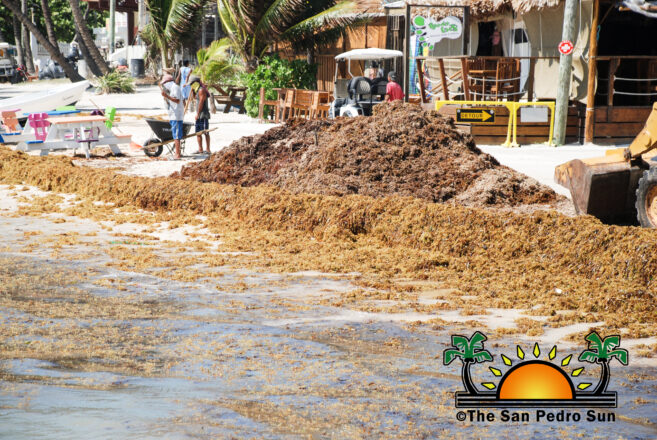
As the seaweed invasion has transitioned from seasonal to almost year-round, removing it from the beaches is not enough. Removal has become a vicious cycle of never-ending sargassum, a practice that eliminates the seaweed along with beach sand, causing further damage to the coastline. It is estimated that the Caribbean region spends approximately $120 million annually to collect and dispose of rotting seaweed off beaches. In 2022, the region saw an invasion of some 24 million tonnes of sargassum. The seaweed poses a grave threat to the world’s most breathtaking ecosystem, so large it can be seen from space. The Mes-American Reef is a haven for fish and many marine species. This natural resource contributes millions of dollars to the Belize tourism industry and provides significant employment.
Briceño said the Belize solution is converting sargassum into energy. The idea to process the seaweed started following a trip to Germany in September 2022 by Belize’s partners involved in the project. Briceño shared in the virtual meeting that after discussions and research, a Public-Private Partnership was formed with Belize via signing a Memorandum of Understanding with the German company Variodin, Ag., specializing in energy and waste conversion development technologies. This partnership aims to develop and deploy a multi-purpose SIDS-Appropriate Waste-to-Energy facility to process waste from municipalities and sargassum to biofuels.
The Belizean Prime Minister shared with those in the Assembly that the Caribbean region faces considerable challenges in implementing a solid waste management infrastructure, estimated to require up to $2.5 billion in investment. Briceño told his colleagues that while complete mitigation is impossible, control is within reach and encouraged them to support the initiative. “It’s an investment in our shared future and the well-being of all citizens,” Briceño told them.
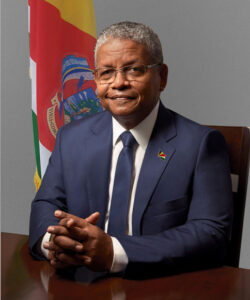
During the virtual ceremony, the SIDS DOCK Assembly also elected by acclamation His Excellency Mr. Wavel Ramkalawan, President of the Republic of Seychelles as President of the 7th session of the SIDS DOCK representing the Atlantic, Indian Ocean and South China Sea Region and the Honourable Siaosi ‘Ofakivahafolau Sovaleni (Hon. Huʻakavameiliku), Prime Minister of the Kingdom of Tonga as Vice President representing the Pacific Region. The Assembly further elected by acclamation, His Excellency Mr. Steve Ferrol, Ambassador of the Commonwealth of Dominica to the United States of America and the Organization of American States, as a member of the SIDS DOCK Executive Council, representing the Caribbean Region, for the term 2024 to 2026. The ceremony was attended by members of the SIDS DOCK who are also members of the Alliance of Small Island States, UNIDO, the SIDS DOCK Institutional Partner, non-SIDS Permanent Members of the United Nations from Austria, Japan and Spain, other SIDS DOCK Partners, and Observers.
SIDS DOCK was established in 2015 and has become a United Nations-recognized internal organization. It has all the rights and privileges to address climate change, resilience, and energy security in small islands. SIDS DOCK represents 32 small islands and low-lying developing states across the globe, serving as a docking station connecting the energy sector in SIDS with the global markets for finance and sustainable energy technologies. Its work is coordinated by the Secretariat in Belize’s capital, Belmopan City.

